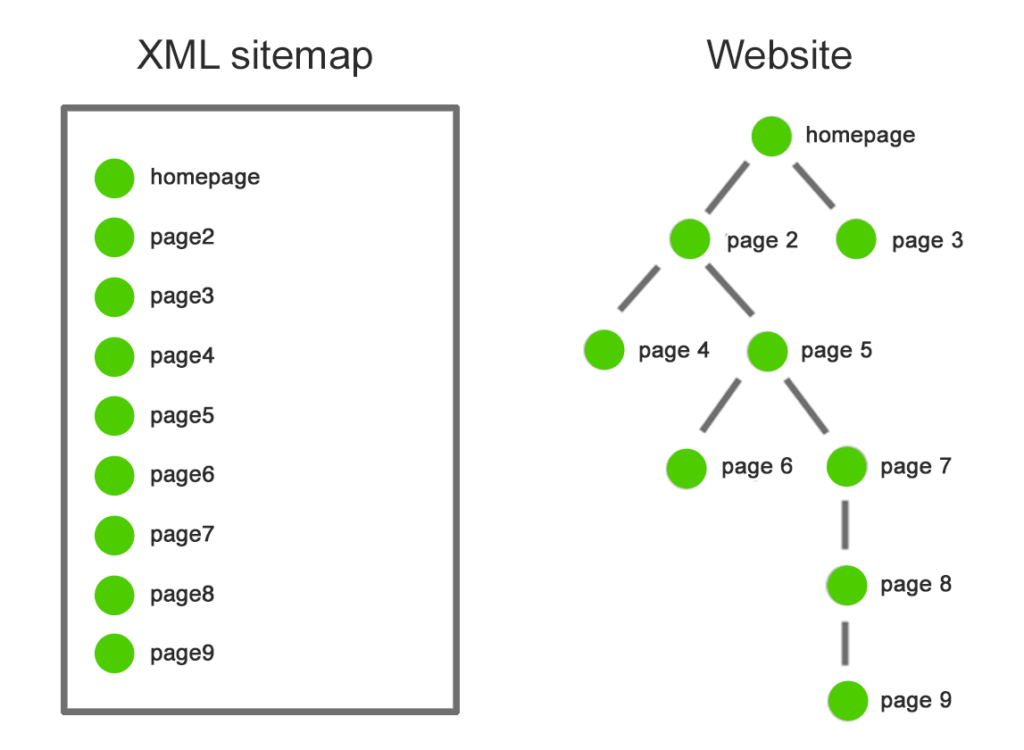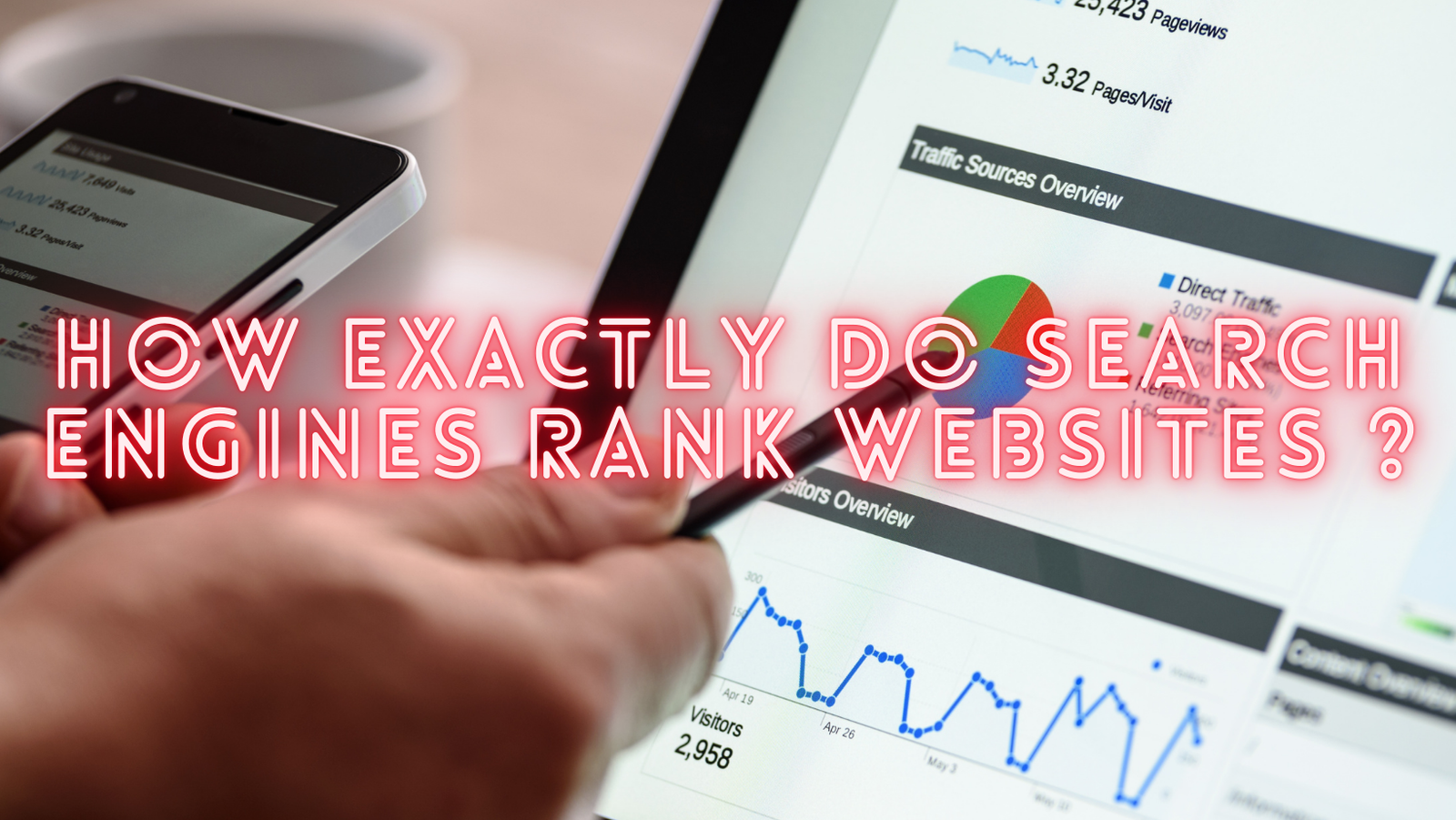If you’re a website owner or a marketer, you’ve probably heard the term “search engine optimization” or SEO. SEO is the practice of optimizing your website to rank higher in search engine results pages (SERPs) for specific keywords and phrases. But how exactly do search engines rank websites in their search results? In this article, we’ll explore the factors that influence search engine rankings and provide tips on how to improve your website’s SEO.
Table of Contents
What Are Search Engines and How Do They Work?
Before we dive into the ranking factors, let’s first define what search engines are and how they work. Search engines are online tools that help users find information on the internet. The most popular search engines are Google, Bing, and Yahoo. When a user enters a query into a search engine, the search engine uses complex algorithms to find and rank the most relevant and authoritative web pages that match the query.
How Exactly Do Search Engines Rank Websites in Their Search Results?

Search engines use a variety of ranking factors to determine the relevance and authority of a web page. While the exact algorithms are closely guarded secrets, here are some of the most important factors that influence search engine rankings:
1. Content Quality and Relevance
Search engines prioritize websites that provide high-quality, relevant content that matches the user’s search intent. Your content should be unique, informative, and engaging. Avoid duplicate content, keyword stuffing, and low-quality content that provides little value to the user.
2. On-Page Optimization
On-page optimization refers to the technical aspects of your website that can affect your search engine rankings. This includes elements such as title tags, meta descriptions, header tags, image alt tags, and URL structure. Ensure that your website is optimized for both users and search engines.
3. Backlinks and External Links
Backlinks are links from other websites that point to your website. External links are links from your website to other websites. Search engines use backlinks and external links to determine the authority and popularity of a website. Focus on building high-quality backlinks from authoritative websites in your industry.
4. User Experience

Search engines prioritize websites that provide a positive user experience. This includes factors such as website speed, mobile-friendliness, and easy navigation. Ensure that your website is easy to use and provides a seamless experience for your users.
5. Social Signals
Social signals refer to the number of likes, shares, and comments that your content receives on social media platforms such as Facebook, Twitter, and Instagram. While social signals are not a direct ranking factor, they can indirectly influence your search engine rankings by driving traffic to your website and increasing your website’s authority.
6. Domain Age and Authority
Domain age and authority refer to the length of time that your website has been online and the authority that it has built up over time. Websites with a long history and more authoritative backlinks are generally considered more trustworthy and authoritative by search engines.
7. Local SEO
Local SEO refers to the practice of optimizing your website for local search results. This includes elements such as local keywords, local backlinks, and Google My Business optimization. If you have a local business, optimizing for local SEO can help you rank higher in local search results.
FAQs
Q1. What is the most important factor for search engine rankings?
The most important factor for search engine rankings is content quality and relevance. Search engines prioritize websites that provide high-quality, relevant content that matches the user’s search intent.
Q2. How long does it take to see results from SEO?
It can take anywhere from a few weeks to several months to see results from SEO. The timeline depends on a variety of factors such as the competitiveness of your keywords, the quality of your content, the number of backlinks to your website, and the overall authority of your website.
Q3. Is keyword density still important for SEO?
Keyword density, or the number of times a keyword appears on a page compared to the total number of words on the page, is no longer an important ranking factor for SEO. Instead, focus on creating high-quality content that uses keywords in a natural and relevant way.
Q4. Can I pay to improve my search engine rankings?
While there are some paid advertising options that can help you appear at the top of search engine results pages, you cannot pay to improve your organic search engine rankings. Organic rankings are determined by the relevance and authority of your website, not by how much money you spend on advertising.
Q5. Do social media signals directly impact search engine rankings?
Social media signals do not directly impact search engine rankings, but they can indirectly influence your rankings by driving traffic to your website and increasing your website’s authority.
Q6. What is the difference between on-page and off-page optimization?
On-page optimization refers to the technical aspects of your website that can affect your search engines rankings, such as title tags, meta descriptions, and header tags. Off-page optimization refers to factors that are outside of your website, such as backlinks and social signals.
Conclusion
Search engine optimization is an important practice for any website owner or marketer who wants to improve their online visibility and drive more traffic to their website. While the exact algorithms that search engines use to rank websites are closely guarded secrets, by focusing on factors such as content quality, on-page optimization, backlinks, user experience, social signals, and local SEO, you can improve your chances of ranking higher in search engine results pages.
Remember that SEO is a long-term strategy that requires ongoing effort and patience. By consistently creating high-quality, relevant content, optimizing your website for both users and search engines, and building authoritative backlinks, you can improve your search engine rankings over time and drive more traffic to your website.
So, now that you know how exactly search engines rank websites in their search results, it’s time to start optimizing your website for better search engine rankings!





